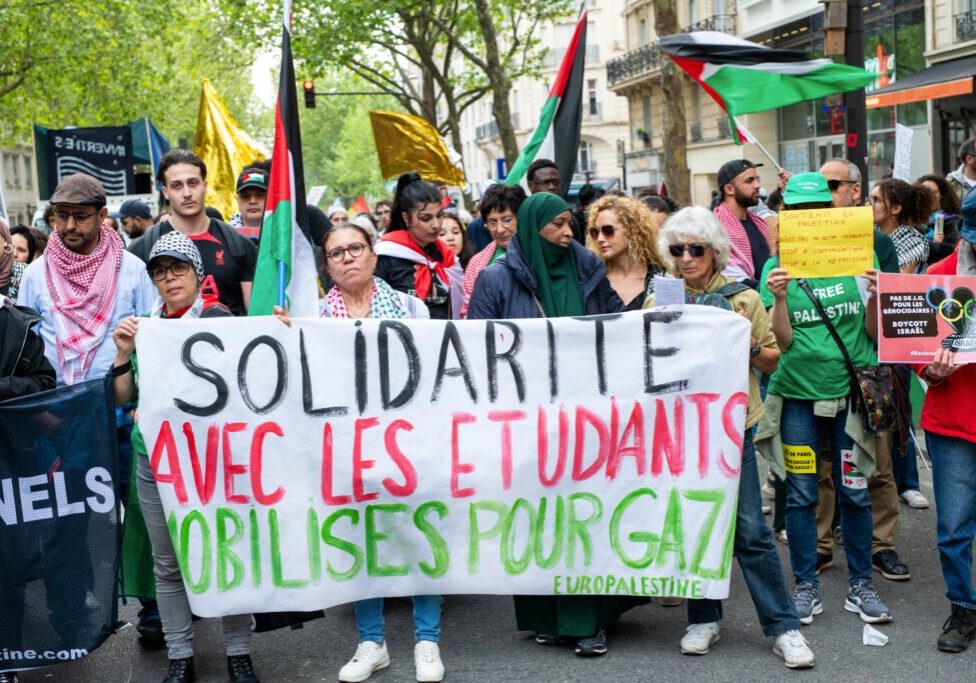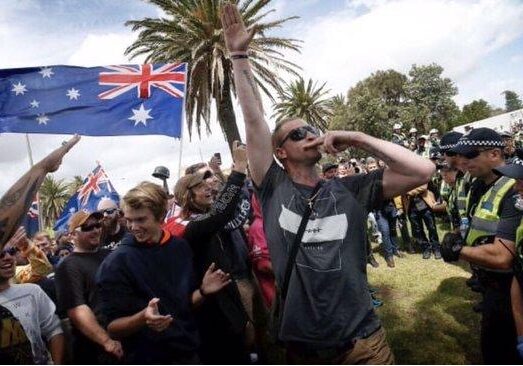Australia/Israel Review
Europa Europa: Pop-Up Populists
Mar 8, 2016 | Douglas Davis
From London to Los Angeles the chattering classes are in the grip of political madness. In the early US primaries, Republican front-runner Donald Trump promised to reinstate torture (not just water-boarding, but “a helluva lot worse”), while his populist Democrat counterpart, Bernie Sanders, offered voters a wholesale redistribution of the nation’s wealth (with a generous side-serving of “political revolution” thrown in). It would be amusing if it were not so sad.
But when it comes to political loopiness, anything the Americans do, the Europeans can do better.
Populists – on the far right and left – have popped up across Europe. The political Grand Tour today reveals the far-left Syriza and the neo-Nazi Golden Dawn in Greece, the Front National in France, the Alternative and Linke in Germany, Flemish Interest in Belgium, the Party for Freedom in the Netherlands, the Northern League in Italy, Fidez and Jobbik in Hungary, the Freedom Party in Austria, plus a slew of far-right parties throughout Scandinavia.
In Britain, the ultra-nationalist UK Independence Party scooped up more than four million votes in last year’s general election, and now the opposition Labour Party is setting course for a journey to the wacky outer-reaches of utopia. Jeremy Corbyn, a surly, sulky maverick who has occupied the parliamentary backbenches unremarkably for more than 30 years, was swept into the leadership by a substantial majority of party members who wrap themselves in the flag of Palestine to oppose capitalism, globalisation, fracking, poverty, climate change, nuclear weapons, animal experiments and, not least, traditional Western values. Soon after his election, Corbyn addressed the parliamentary Labour Friends of Israel without actually once mentioning the word that dare not speak its name: Israel.
Populists like Corbyn know what they want, but their grass-roots followers are fuelled by a concoction of anger, despair and a sense of impotence over the inability of Europe’s established political classes to respond to political, economic and social turmoil. One catalyst for the madness, however, is the inability of the political elite to affect the biblical tide of refugees that many indigenous inhabitants fear is changing their world forever.
The strain of unchecked Muslim immigration is provoking countries to ring their borders with razor-wire fences, block inter-state highways and reinstate border crossings that had become a distant memory in most of the European Union. It is also persuading many ordinary people to exchange their “wilkommen” banners for boxes of matches to burn down centres that have been thrown up to accommodate the migrants.
If the origin of all this political angst is clear, it is less clear where the tumult is leading.
What is known for certain is that the overwhelming majority of the 1.5 million Muslim migrants who arrived in Europe last year are here to stay, whether or not they are genuine asylum seekers. Most arrived without any identity papers; others with high-quality fake Syrian passports that are on sale in Turkey for US$1,000 a piece. Some 3,200 have been arriving each day this year and some three to five million more are expected to make the journey. Add to that the seven or eight people who are likely to follow each migrant under family reunification laws…
Few people would argue that genuine asylum seekers do not have a right to protection. But how far should that protection extend? Many Europeans, particularly Germans, who were appalled by their leaders’ apparent eagerness to open their doors, were dumbstruck when those leaders sought to excuse the egregious behaviour of the migrants when more than 500 German women were sexually attacked while celebrating New Year’s Eve in Cologne.
There was a sense that the women themselves were to blame. Cologne Mayor Henriette Reker scolded the women for not keeping the men “at arm’s length” while another local official suggested that the women should dress “more modestly”. The Imam of the Salafist Cologne mosque, Sami Abu-Yusuf, summed it up when he declared that the women themselves were to blame because “they were half naked” and “wearing perfume”.
If ordinary Europeans are appalled at the events, Jews are experiencing an extra level of concern. They know the migrants are coming from countries where Israel and Jews have been thoroughly demonised. And they know that their fellow Europeans have also been deluged by a surfeit of unfettered hatred of Israel, which has metastasised into hatred for Jews (antisemitic acts increased by 40% in Europe last year). They fear that when the time comes for an inevitable accommodation, it is precisely here – on the issue of Jews and Israel – that Europeans and the Muslim migrants will find common cause.
Germany’s Chancellor Angela Merkel raised the alarm last month when she said that antisemitism is “more widespread than we imagined.” She called for action to “deal with [antisemitism] especially among young people… from countries where hatred of Israel and hatred of Jews is widespread.” Too late.
While European leaders declare their determination to protect their Jews – and nobody doubts their sincerity – when the chips are down, the Jews are not confident that they will be willing and able to defend them. Little wonder, then, that Israeli officials are reporting record levels of immigration from Europe.
This article is featured in this month’s Australia/Israel Review, which can be downloaded as a free App: see here for more details.






